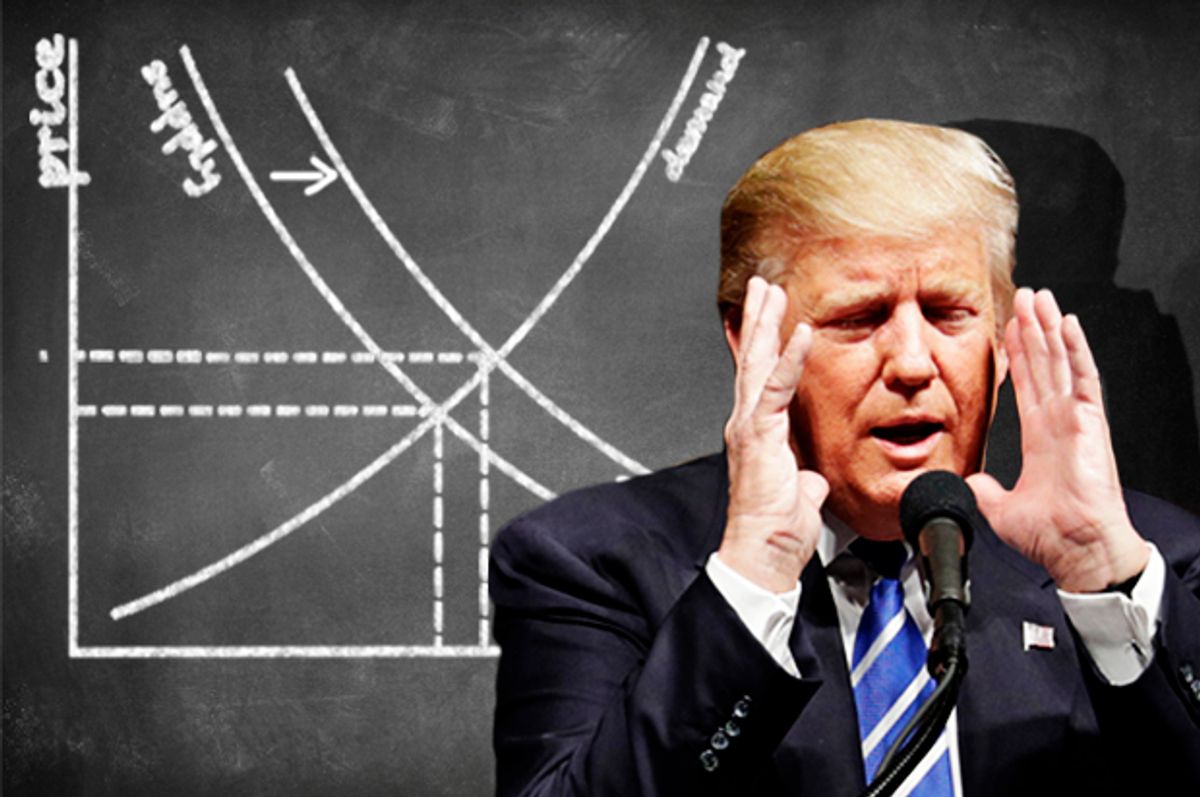From the moment it was proposed, the Republicans’ 2017 tax cut law was criticized for benefiting corporations and wealthy Americans. doing comparatively little for low-income Americans, and needlessly blowing a hole in the federal deficit.
About a year and a half since its passage, the criticisms are looking apt. And none of the supposed benefits promised by Republicans — moderate and extremist alike — have materialized. No boom in business investment, no supercharged wages, and no phenomenal jobs growth.
In fact, as new data from the Bureau of Labor Statistics reveal, the Tax Cuts and Jobs Act appears to have done even less on the “jobs” side of the equation than we previously thought.
This week the bureau announced that it has revised its estimates for the state of U.S. employment in 2018 downward by about 500,000 jobs. That doesn’t mean people had jobs and lost them — it just reflects the fact that statistical analysis usually involves a margin of error, and in this case the bureau overestimated the number of jobs added to the economy in the past year. An error of 500,000 is relatively large for a revision, but not unheard of, and it doesn’t suggest any egregious mistakes or nefarious dealings.
It does mean, however, that the U.S. in 2018 averaged about 200,000 new jobs a month, down from an estimated 223,000 jobs. The economy was secretly slumping, but it wasn’t quite as strong as we thought.
And while normally this wouldn’t mean a whole lot, it does have serious implications for the Tax Cuts and Jobs Act. Despite its myriad problems, one of the positive claims you could credibly make about the law is that it provided a temporary boost to the economy shortly after it was enacted. This would be a real benefit to the workers who got a hired or got raises because of this boost, even if the size and broader effects of the tax cut still made it regrettable.
But the new data reveals that even this supposed, temporary boost — a “sugar high,” some called it — appears to have been largely illusory.
This comes on top of the recent revelation that, despite prior reports, the economy didn’t grow at a rate of 3 percent in 2018, as President Donald Trump had boasted. The Wall Street Journal reported:
Mr. Trump has touted the prior estimates of economic and job growth in 2018 as a sign that his economic policies—including a 2017 tax cut—were giving the economy a boost after years of lackluster growth. The revised figures show his goal of 3% growth wasn’t achieved in 2018 and that the tax overhaul may have had a smaller short-term impact than his administration previously thought.
Meanwhile, the tax cut is projected to add an estimated $1.5 trillion to the debt over the next decade, despite the fact the Republicans promised it would pay for itself. More recent budget negotiations have also led to an even greater projected deficit in the coming years. While the deficit itself is not necessarily a problem, Republicans will no doubt use it as a bludgeon and a scare tactic as soon as Democrats hold the White House once again. And spending borrowed money on pointless tax cuts while truly needy Americans go wanting exposes the United States as a country that has clearly lost its way.




Shares